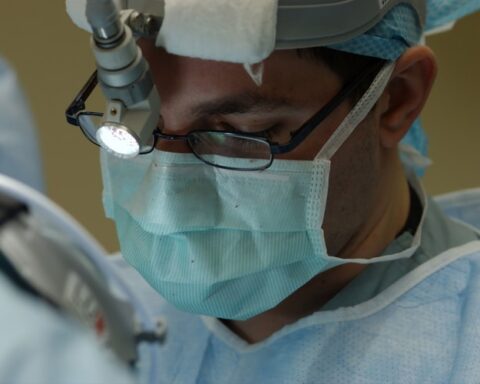Mohammad Shahadat Hossain is the kind of person who doesn’t just have a plan B, he has a plan C as well. In 2011, he left his job as a chief consultant at a private hospital in Bangladesh to immigrate to Ottawa. Together with his wife and teenage daughters, Hossain came looking for a better life – and found just that.
“I have a good connection with the community and it’s positive – our social status, my kids’ education and wife’s situation. I just bought a house and we moved in last month,” he shares, excitedly. “The only negative thing is that I’m not getting a job as a physician.”
For years after his move to Canada, Hossain was focused on one thing: obtaining his licence to practise as a physician. It’s a process he’s decided to put on hold after passing two out of four required exams.
A Bleak Picture
Hossain is one of over 15,000 internationally trained doctors who have immigrated to Ontario since 2007, according to estimates by HealthForceOntario.
Approximately 1,500 international medical graduates apply for the 250 residency positions available every year in Ontario. The success rate for internationally trained medical graduates of Canadian origin (Canadians who went overseas to study) was 20 per cent, while the success rate for medical graduates who immigrated to Canada is only six per cent, according to research from St. Michael’s Hospital.
Knowing these statistics, Hossain enrolled in the Internationally Trained Medical Doctors (ITMD) bridging program at The G. Raymond Chang School of Continuing Education at Ryerson University, which began earlier this year as a pilot project.
After participating in the program, Hossain says he’s more knowledgeable about the Canadian health field, has increased confidence and is redirecting his career goals.
Accepting a position in the program meant he would have to move to attend the daily classes. Hossain said goodbye to his family and rented a house in Toronto to attend the four-month program. “I’m thankful for my family,” Hossain reflects. “They sacrificed a lot for me.”
After participating in the program, Hossain says he’s more knowledgeable about the Canadian health field, has increased confidence and is redirecting his career goals.
“I was thinking that if I studied a lot I would be able to pass the exams and get my licence, but in reality, even if I pass all the exams it’s very hard to get a residency,” he says.
The ‘Brain Drain’
A study released in 2014 by researchers at St. Michael’s Hospital examined the ‘brain drain’ of doctors who immigrated to Canada, based on a survey of internationally trained doctors.
Respondents overwhelmingly said information on the difficulty of obtaining residency was not clearly communicated, and a substantial number of respondents said they were misinformed about the reality of obtaining residency in Canada. Several respondents indicated regrets of immigrating to Canada.
The study recommended that Canada ensures, “the immigration process clearly outlines the relatively low likelihood of obtaining a career in medicine after immigration … it should be acknowledged that obtaining Canadian experience is a near impossibility …”
Hossain, for one, has redirected his path and is no longer seeking to work as a physician. “I am thinking of switching over from a licencing pathway to a research pathway because I think it’s much easier,” he explains.
Thousands of internationally trained doctors find out about this ‘near impossibility’ too late.
Hossain, for one, has redirected his path and is no longer seeking to work as a physician. “I am thinking of switching over from a licencing pathway to a research pathway because I think it’s much easier,” he explains.
Hossain’s clinical placement through the ITMD bridging program was at St. Michael’s Hospital, where he had opportunities to network, which is largely responsible for landing him a job. He now works remotely as a coder on the Millennium Death Study – an initiative of the Centre for Global Health Research, which is examining causes of death in India over the last 100 years.
“We look for common causes of death in India. Hypertension is one of the causes of death, so if we find that most people die by this, they will change the system and health policy to focus on how to prevent hypertension,” he shares.
Remaining Optimistic
Hossain was one of three of the ITMD program’s 14 students to receive a job after graduating earlier this month. The work is fulfilling, but part-time, so he continues to seek opportunities to contribute as a research assistant in the areas of global health and non-communicable diseases.
Hossain is hopeful that he will find a job, but has a Plan C just in case. He says he will travel back and forth between working as a gynaecologist in Bangladesh and spending time with his family in Ottawa. The hospital Hossain formerly worked for has an open offer for him to return to his previous job, and he says this security is reassuring.
According to the ‘brain drain’ study, however, significant harm can be done to the health care systems in the home countries of immigrant doctors.
Amongst the study’s recommendations was advice to health care systems in low-income and middle-income countries to offer incentives for physicians to stay in their home countries such as improved working conditions or financial perks for working in rural or underserved areas.
“It often means health workers lose their skills and may not be able to perform tasks effectively if they return home to work …” the study reveals.
Amongst the study’s recommendations was advice to health care systems in low-income and middle-income countries to offer incentives for physicians to stay in their home countries such as improved working conditions or financial perks for working in rural or underserved areas.
Although Hossain may have to return to Bangladesh to find work, he remains optimistic. “I’m not at all frustrated,” he says, reflecting on the time he spent studying for his licencing exams in Canada. “I was practising professionally for almost 20 years and I have professional satisfaction.”
This is part two of a series of profiles of graduates of the Internationally Trained Medical Doctors program.




